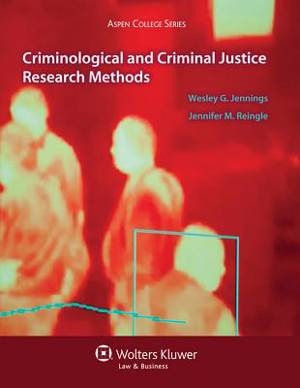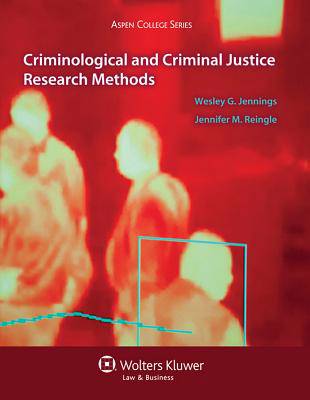
- Afhalen na 1 uur in een winkel met voorraad
- Gratis thuislevering in België vanaf € 30
- Ruim aanbod met 7 miljoen producten
- Afhalen na 1 uur in een winkel met voorraad
- Gratis thuislevering in België vanaf € 30
- Ruim aanbod met 7 miljoen producten
Omschrijving
Understanding research goals and methods is essential to successful and effective work in these fields, and this engaging, direct, and, at times, humorous text demonstrates that importance and helps prepare students for that effectiveness and success. Jennings and Reingle offer clear, practical introductions, with extensive, compelling examples, to the essential classical research methods, including ethics, measurement, surveys, secondary data analysis, and sampling, along with emerging new approaches, such as case-control and longitudinal designs and experiments in criminology and criminal justice settings. With its focus on research design, this text provides the information most useful to students as future research consumers, rather than specialized analysts, of research data.
The authors' scenario-based treatments of real-world situations and applications facilitate understanding of the full range of criminological and criminal justice research methods and illustrate the usefulness of that understanding for implementing and employing evidence-based policies in whatever agencies or roles students work in or engage with in their future careers.
Criminological and Criminal Justice Research Methods offers:
- A dynamic, authoritative author team professionally involved in theoretical, methodological, empirical, and practical evaluations and applications of criminology and criminal justice research methods
- A practical, real-world focus on the methodologies most useful in daily criminal justice practice
- Comprehensive coverage of classical and cutting-edge criminological and criminal justice research methods, including ethics in research, measurement, survey construction and use, secondary data analysis, sampling, and experimental, longitudinal, case-control, and qualitative study design
- A separate chapter on and frequent, integrated references throughout the text to maintaining an ethical approach to treatment of participants and use of data
- Interesting, accessible, direct writing, with each chapter building on real-world scenarios to elucidate the nature and applications of research methods
- Extensive pedagogy in each chapter, from a summary of important concepts, definitions of key terms, and review questions to resources for more in-depth study, including lists of useful websites and references
- A full range of comprehensive, flexible instructional and learning materials online at
Specificaties
Betrokkenen
- Auteur(s):
- Uitgeverij:
Inhoud
- Aantal bladzijden:
- 204
- Taal:
- Engels
- Reeks:
Eigenschappen
- Productcode (EAN):
- 9781454833062
- Verschijningsdatum:
- 24/02/2014
- Uitvoering:
- Paperback
- Formaat:
- Trade paperback (VS)
- Afmetingen:
- 203 mm x 254 mm
- Gewicht:
- 421 g

Alleen bij Standaard Boekhandel
Beoordelingen
We publiceren alleen reviews die voldoen aan de voorwaarden voor reviews. Bekijk onze voorwaarden voor reviews.











